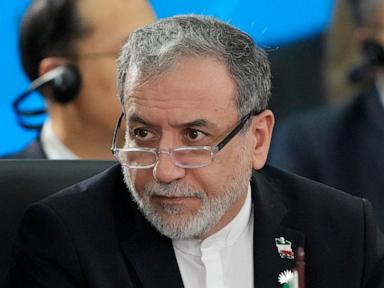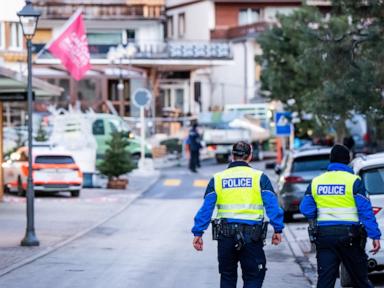Iran and European Nations Hold Urgent Talks on Nuclear Program

Iran’s Foreign Minister Abbas Araghchi is set to engage in a telephone conference with his counterparts from France, Germany, and the United Kingdom as the nation faces an impending deadline concerning its nuclear program. This call is crucial in efforts to prevent the reimposition of United Nations sanctions under a mechanism known as “snapback,” which is part of the 2015 nuclear deal.
The conference call, scheduled for August 31, 2023, also includes the European Union’s chief diplomat. This dialogue takes place against a backdrop of heightened concern over Iran’s nuclear activities, particularly after Tehran enriched uranium to near weapons-grade levels prior to the recent conflict with Israel. The situation escalated following the bombing of Iran’s atomic sites during the 12-day war, which has led to Iran cutting off all cooperation with the International Atomic Energy Agency (IAEA).
The IAEA has historically monitored Iran’s nuclear program, and its reduced access has left the international community in the dark regarding the status of Iran’s uranium stockpile, which has been enriched to 60% purity—a significant step toward the 90% threshold considered weapons-grade. Despite Iran’s assertions that its nuclear program is peaceful, it remains the only non-nuclear-armed nation actively enriching uranium at that level.
In a letter dated August 8, the three European nations warned Iran that they would proceed with the snapback mechanism if a satisfactory resolution to the nuclear issues was not achieved by the deadline. With only days remaining, prospects for a comprehensive agreement seem slim, especially given the long history of inconclusive negotiations between Iran and the European powers.
Reinstating the IAEA’s access to Iran’s facilities is a central focus of the discussions. Iran has previously blamed the IAEA for various accusations without providing substantial evidence. Historically, the IAEA has published quarterly reports on Iran’s nuclear activities, and the 2015 agreement granted the agency enhanced access to ensure compliance with the terms of the deal.
Further complicating the situation, Iran has issued threats against the IAEA’s Director-General, Rafael Mariano Grossi, stating that he could face arrest if he visits Iran. These tensions have been exacerbated by Grossi’s potential candidacy for the position of U.N. Secretary-General, which Iran has leveraged in its criticisms of him.
The urgency of these talks is heightened by the impending expiration of the snapback power in the nuclear accord, which is set to lapse in October. This development places additional pressure on European nations to act swiftly, as any future attempts to reinstate sanctions could face opposition from China and Russia, both of whom have historically supported Iran and remained neutral during the June conflict.
As the deadline approaches, the international community watches closely, aware that the outcome of these discussions will significantly impact the future of diplomatic relations and nuclear non-proliferation efforts in the region.






